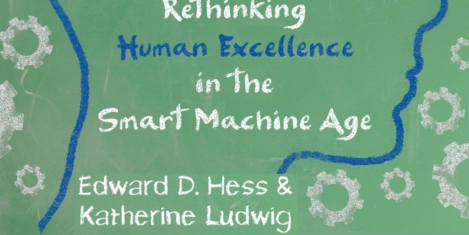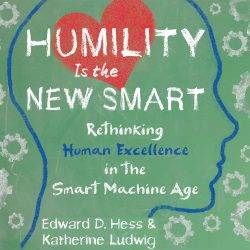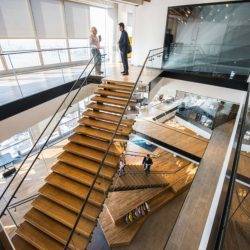March 3, 2017
A collection of essays musing on the precarious and uncertain future of work 0
 The Institute for Employment Studies (IES) has published its annual collection of articles addressing today’s pressing issues for organisations. In acknowledgement of current turbulent times, the team of researchers and consultants have pulled together existing research and their own insights from working with organisations, offering their reflections on how leaders and HR practitioners can successfully navigate the imminent challenges. The collection, Darkening Skies? IES Perspectives on HR 2017, reflects the current sense of uncertainty around what future awaits. The shift towards new and more precarious forms of work, made possible by the growth in digital platforms and solutions, is a recurring topic appearing in many of the articles. They also explore the possible effects and mitigations of known issues such as the ageing workforce and its associated health implications; the growing need to support employee financial wellbeing; and the dangers of ignoring the employee voice.
The Institute for Employment Studies (IES) has published its annual collection of articles addressing today’s pressing issues for organisations. In acknowledgement of current turbulent times, the team of researchers and consultants have pulled together existing research and their own insights from working with organisations, offering their reflections on how leaders and HR practitioners can successfully navigate the imminent challenges. The collection, Darkening Skies? IES Perspectives on HR 2017, reflects the current sense of uncertainty around what future awaits. The shift towards new and more precarious forms of work, made possible by the growth in digital platforms and solutions, is a recurring topic appearing in many of the articles. They also explore the possible effects and mitigations of known issues such as the ageing workforce and its associated health implications; the growing need to support employee financial wellbeing; and the dangers of ignoring the employee voice.








 Employees would like more freedom and flexibility at work with over half believing that the structure and culture of their workplaces are holding them back from doing their job more effectively (55 percent and 53 percent respectively). That’s according to new research from ILM, which has launched a new
Employees would like more freedom and flexibility at work with over half believing that the structure and culture of their workplaces are holding them back from doing their job more effectively (55 percent and 53 percent respectively). That’s according to new research from ILM, which has launched a new 












 Amos Tversky and Daniel Kahneman introduced the concept of Loss Aversion in 1984, highlighting people’s tendency to strongly prefer avoiding losses to acquiring gains. Most studies suggest that losses are twice as powerful, psychologically, as gains. Lose £100 and we will feel a remorse that easily outweighs winning £100. In a similar fashion we find it very hard to see future positives when confronted with short term loses. We understand easily what we have lost but cannot imagine what there is to be gained. Furthermore, as Frederic Bastiat wrote in an 1850 paper, “That Which is Seen, and That Which is Not Seen”, man has a tendency to “pursue a small present good, which will be followed by a great evil to come, rather than a great good to come, at the risk of a small present evil”. Put these together and it is no wonder that, by and large, the future of work, corporate real estate and the workplace is so widely misunderstood.
Amos Tversky and Daniel Kahneman introduced the concept of Loss Aversion in 1984, highlighting people’s tendency to strongly prefer avoiding losses to acquiring gains. Most studies suggest that losses are twice as powerful, psychologically, as gains. Lose £100 and we will feel a remorse that easily outweighs winning £100. In a similar fashion we find it very hard to see future positives when confronted with short term loses. We understand easily what we have lost but cannot imagine what there is to be gained. Furthermore, as Frederic Bastiat wrote in an 1850 paper, “That Which is Seen, and That Which is Not Seen”, man has a tendency to “pursue a small present good, which will be followed by a great evil to come, rather than a great good to come, at the risk of a small present evil”. Put these together and it is no wonder that, by and large, the future of work, corporate real estate and the workplace is so widely misunderstood.















January 17, 2017
The very idea of a universal workplace is seriously flawed 0
by Kyle Pinto • Comment, Flexible working, Technology, Workplace design
More →